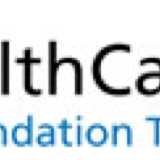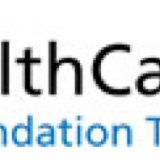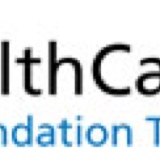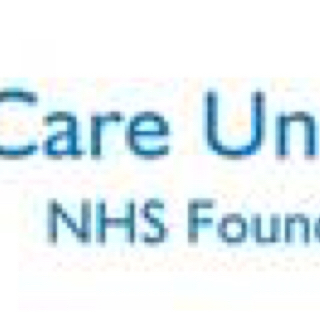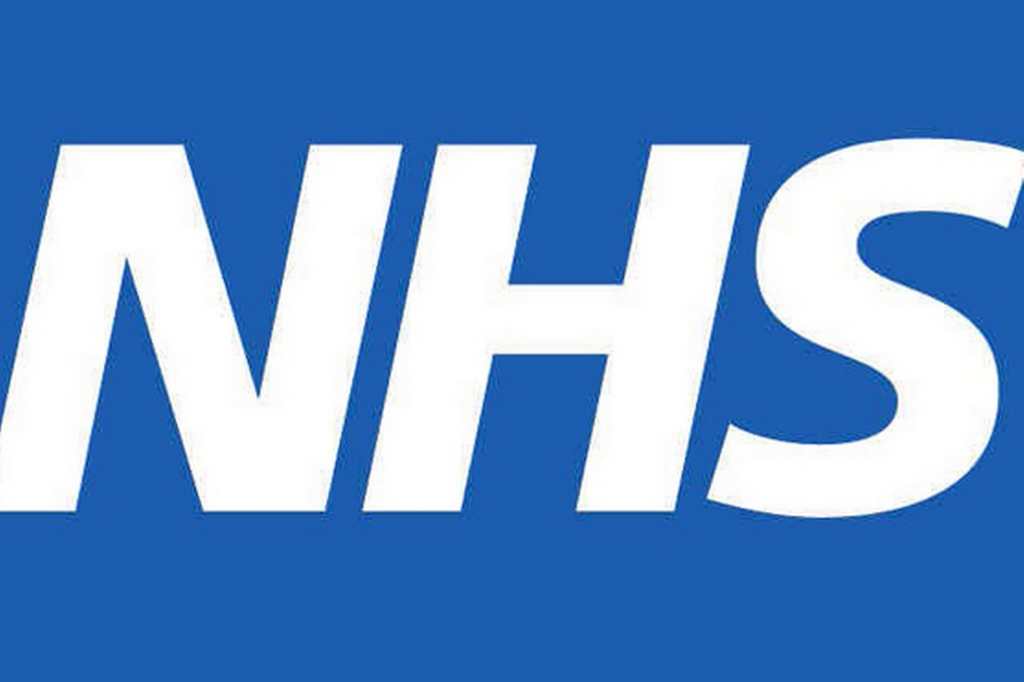Title Page
-
Project / Scope of Works:
-
Client / Site:
-
Contractors Name:
-
Conducted on:
-
Name of Inductor:
-
Name of Inductee:
-
Personnel involved / present:
-
Explain the layout of the hospital / site and location of working area, give location of public WCs and restaurant / cafe - refer to safety booklet where necessary.
The reference to the term 'contractors' will include sub-contractors or tradespeople working within the scope of works and Trust premises.
Section A
Section A
-
Behaviour
-
Patient dignity must be respected at all times, in all areas of the Trust. Contractors behaviour and conduct must be exemplary and in a manner that befits their company. The use of inappropriate language or bad behaviour will not be tolerated.
-
Dress Code
-
All contractors are to remain appropriately dressed at all times. During warm weather clothing is not to be removed to a state of undress. This includes breaks or areas perceived as being out of sight.
-
Smoking
-
Smoking, including the use of electronic cigarettes is not permitted on any Trust owned premises, this includes car parks and inside own vehicles parked on site.
-
Drinking
-
Contractors or sub-contractors are not to consume alcohol whilst conducting works on Trust premises. Hot and cold refreshments may be permitted as per the Welfare arrangements.
-
Mobile Phones / Cameras
-
Although they can be used across the majority of Trust sites, there may be restrictions in certain areas and these will be controlled locally. To maintain patient confidentiality, privacy and dignity, phone cameras must not be used in clinical areas where patients are present and under strict controls.
-
Radios / Music
-
In the interests of disturbing patients and staff the playing of music is not permitted on any Trust premises. This includes the use of personal and vehicle stereo systems including the use of headphones which may prevent or reduce the ability to receive clear instructions.
-
Eating
-
Eating and the taking of meals will be as per local arrangements and covered by welfare.
-
PPE - (e.g. 5 Point?)
-
All contractors have a responsibility to ensure that PPE identified through risk assessments is provided and worn at all times.
-
Manual Handling
-
All contractors are to ensure that any moving and handling tasks are assessed prior to taking place and there are no residual risks to staff, patients or visitors.
-
Disclosure and Barring Service (DBS) Checks
-
It is recognised that some contractors may not have undertaken DBS checks. Therefore during the Estates planning process of each contract, a decision based upon a risk assessment will be made as to whether a DBS check will be required or whether segregation from patients or the supervision of contractors staff will be necessary.
-
Confidentiality / Data
-
The Trust is committed to protecting confidential information. Any contractor finding paperwork or information that appears to be personal or sensitive should notify a recognised member of staff and not disclose that information.
-
Parking / Vehicles
-
The Trust has limited amount of parking. Vehicles should be strictly limited to the amount decreed at the pre-site meeting and only parked within allocated areas. Contractors arriving in single vehicles (i.e. 1 man - 1 van) should off load their equipment and then park off site. Speed limited must be adhered to.
-
Tidiness
-
All working areas, especially those in close proximity to others should be kept to a clean and tidy standard so as not to create any additional hazards. Tools and equipment must be controlled to prevent theft or unlawful use. Suitable barriers, lighting and warning signs will be employed to ensure safe working.
-
Access
-
Members of the public may attempt to gain access purposely or inadvertently. Contractors must monitor their working areas and prevent any unauthorised access. Areas that employ strict access controls such as mental health wards must be adhered to at all times. Emergency access routes and doors must be kept clear at all times.
-
Working Hours
-
Contractors are expected to maintain the agreed hours of work, especially where there are protected patient meal times or clinical interventions.
-
Safety Signs
-
In accordance with risk assessments, safety signs should be in place locally where the works are being undertaken as well as allocated compounds.
-
Training Competencies / CSCS Cards
-
Lead contractors / site managers are responsible for ensuring that their trade staff have appropriate health and safety competencies for the tasks being undertaken and for the equipment being used.
Section B
Section B
-
Security
-
Allocated spaces such as compounds, storage areas and dedicated work sites are to be kept secured when not in use and controlled when in use. Tools and equipment must be secured / locked off when not being used.
-
Access Cards & Keys
-
Access cards and keys issued to contractors and sub- contractors must be returned upon completion of works or daily depending on local arrangements. Contractors are not to give their access cars or keys to anyone else.
-
Site / Compounds
-
Site areas and compounds are to be sited in accordance with pre- start meetings and are to be appropriately secured.
Section C
Section C
-
Welfare Facilities
-
Depending on the local environment and the nature of works being undertaken, eating and drinking is permitted in most areas of the Trust. These along with toilet and washing facilities will be discussed locally.
-
Waste
-
All contractor waste must be stored in appropriate receptacles and not left to accumulate. External waste storage facilities such as skips should not be positioned close to buildings, unless the waste is non-combustible e.g. Rubble. All hazardous waste is to be removed in accordance with controlled instructions and appropriate legislation and guidance.
-
Risk Assessments and Method Statements
-
Method Statements and supporting risk assessments specific to the intended activities are to be provided for all works on Trust premises. Generic RAMS may be acceptable provided that they are accompanied with a letter confirming that they are relevant to the specific works being undertaken. Otherwise specific RAMS will be required.
-
COSHH
-
Contractors using chemicals / substances on Trust sites are to ensure that appropriate COSHH risk assessments have been completed prior to their use and that stringent control measures are recorded and implemented.
-
Infection Control
-
It is important to prevent infections in all clinical environments. Contractors are to ensure that all areas in and around clinical environments are kept clean at all times.
-
Noise / Vibration
-
Trust local managers and staff are to be consulted in advance of any noisy / vibration works being conducted and take all reasonable steps to minimise the levels that are caused. A noise impact assessment should be carried out.
-
Dust / Fumes
-
For dust generating work, a screen needs to be positioned with all joints sealed and kept in good condition throughout. Remove waste debris in tightly sealed containers.
-
Department Hazards
-
All contractors must liaise with local site managers to ensure that they are briefed on any department or ward hazards, including areas that may be closed due to sickness such as Norovirus.
-
Demolition Works
-
Any demolition works are to be scoped separately and will need to have full risk assessments undertaken before works commence. All demolition, dismantling and structural alteration must be carefully planned and carried out in a way that prevents danger by contractors with the relevant skills, knowledge and experience
-
Water / Legionella
-
All hot and cold water systems should be flushed, disinfected and tested prior to being handed back to the Trust. No new dead legs are to be introduced. Where works prevent Trust staff from conducting regular flushing, contractors will be required to undertake this on their behalf.
Section D
Section D
-
Permit to work
-
All works requiring the use of a permit to work scheme such as, hot works, electrical or confined spaces etc. must be assessed, documented and made readily available for viewing. A copy must be provided the health and safety team.
-
Asbestos
-
All contractors must read and sign the site asbestos register / management plan and satisfy themselves before commencing work. Works must cease where ACM or materials that resemble asbestos have been discovered outside the scheduled works. The Trust health and safety team and Estates must be notified as soon as possible.
-
Working at Height
-
Contractors are to ensure that the risks associated with working at height are assessed and that appropriate work equipment is selected and used. This includes the use of appropriate PPE / safety equipment.
-
Fire Safety
-
All contractors must make themselves familiar with the local procedures to be taken in the event of a fire and adhere to the instructions displayed on the Fire Action Notices and any further instructions given by the Fire Warden for the site. In the event of a fire evacuation, all contractors working insideTrust buildings will leave the building and be accountable to the Trusts site Fire Warden.
-
Unwanted Fire Alarms <br>
-
Contractors must not cause unwanted fire alarms by activating the fire detectors with dust, steam, impact damage, or other means.
-
Isolation of the Fire Alarm System
-
In order to maintain fire safety measures and prevent unwanted fire alarm activations, contractors must have an agreed process of controls in place before the fire alarm system is isolated.
-
Site Set Up - Existing Escape Routes
-
Contractors must ensure that their site set-up, compound, fencing, building materials or vehicle parking are sufficiently located away from Trust buildings or assets, and do not cause obstruction to any existing fire escape route or door. Where these requirements are not practicable prior arrangements must be agreed with the Trust Fire Safety Advisor.
-
Site Set-Up - Fire and Rescue Service Access
-
Contractors must ensure that their site set-up, compound, fencing, building materials or vehicles parking does not impede access or turning facilities for fire and rescue service vehicles or any fire hydrant. Where these requirements are not practicable prior arrangements must be agreed with the Trust Fire Safety Advisor.
-
Site Set-Up - Space Separation
-
Contractors must ensure that their site set-up compound, fencing, building materials or vehicle parking is not closer than 6 meters from Trust buildings or assets to ensure that a fire in the site compound cannot spread to Trust buildings. Where these arrangements are not practicable prior arrangements must be agreed with the Trust Fire Safety Advisor.
-
Hot works
-
Any hot works including grinding, or any process which creates temperatures capable of causing ignition must have an agreed process of controls in place before the contract work commences.
-
Portable Fire Fighting Equipment
-
Contractors are responsible for providing their own fire extinguishers appropriate to the task being undertaken following a fire risk assessment by the Contractor and agreed by the Trust Fire Safety Advisor. Fire extinguishers must display confirmation that their periodic checks or tests are valid.
-
Flammable Gases
-
The use of flammable gases for cutting or heating including welding, brazing or soldering must have an agreed process of controls in place before the contract work commences.
-
Flammable Liquids
-
The use of flammable liquids including glues and solvents must have an agreed process of controls in place before the contract work commences.
-
Liquefied Petroleum Gas
-
Liquefied petroleum gas including propane and butane must not be used for space heating inside Trust buildings or site compound buildings.
-
Storage of Flammable Gases
-
Flammable Gases must not be stored inside any Trust building or site compound building. Flammable gas cylinders or containers must be removed from site at the end of each working day.
-
Other Pressurised Containers
-
Pressurised containers not containing flammable liquids or gases including aerosol cans must not be stored inside any Trust building or site compound building. Pressurised containers not containing flammable liquids or gases including aerosol cans may be stored inside external lockable cages inside the Contractors site compound.
-
Waste Storage
-
The location of waste storage including bins and skips must be agreed by the Trust Fire Safety Advisor before the Contract work commences.
-
Emergencies / Major Incidents
-
In the event of an emergency or major incident taken place on or near to Trust premises, all contractors are to follow instructions provided from the appointed Trust local manager. Contracted works may have to suspend or cease dependant on the nature of the event e.g Bomb Scare or major gas leak etc.
-
First Aid
-
All contractors must provide their own first aid arrangements as documented in their risk assessments and have appropriate trained staff to deal with minor incidents and/or summon assistance. Some Trust sites have Minor Injuries Units which can be factored into their working arrangements, but noting their opening hours.
-
Incident Reporting
-
All incidents must be reported to the Trust. Initially to the site manager and then subsequently to the Trust Health and Safety Team and Estates. Any RIDDOR reportable incident will need to be reported to the Health and Safety Team as soon as possible.
Section E
Section E
-
Access / Egress - Emergency Exits
-
Emergency access routes and doors must be kept clear at all times. Pedestrian walkways must be diverted away from working areas or frequent works traffic.
-
Lighting - place of work
-
Suitable and sufficient lighting should be provided and maintained in all workplaces, this may be additional to natural light.
-
Adverse Weather
-
Arrangements for changes in adverse weather conditions are to be considered. In the event of inclement weather affecting the timescales of the works, this must be conveyed to the Trust and measures taken to deal with the conditions, e.g. mud on the road.
-
Lone Working
-
Any contractors employing staff to work independently should have appropriate risk assessments and permits to work in place. Emergency arrangements including communications should be provided.
-
Builders Clean
-
All working areas, including external grounds should be suitable cleaned prior to handing back to the Trust. Immediate working areas must be kept clean and tidy at all times.
-
Cessation of Works
-
Any cessation of works will be via the appointed Trust local representatives e.g Matron, Facilities Manager or the Trust Health and Safety Team / Estates. Planned cessation swill be controlled and maintained by contractors.
Section F - Hazards
Section F - Hazards
Additional comments are to be recorded separately below each of the questions.
-
Ensure all areas where works are taking place have been identified / surveyed for asbestos including areas not normally visited, e.g roof voids, floor voids and store rooms etc.
-
Groundwork's - ensure all groundwork's are segregated and controlled against unauthorised access - collapse, falling person / material, vehicle proximity, groundwater, services etc
-
Are there any services being isolated - prevent accidental reconnection? (lock offs etc)
-
Plant & Equipment - any equipment used on site is to be risk assessed and checked for worthiness to use, regularly maintained and users trained in the correct use of plant.
-
Electrical Supply - all power tools and equipment are to be serviceable and tested. Mains voltage equipment is approved and using an RCB.
-
Ensure hand / power tools are not left unattended at any time.
-
Heavy plant and equipment must be switched off when not in use or left unattended.
-
Barriers / Fences - working area is completely cordoned off from patients and the public.
-
Trailing leads - support at high level to avoid trip hazards or tape down across corridors.
-
Site Vehicles - Traffic routes must be organised to separate pedestrians and vehicles.
-
Lifting Operations and Lifting Equipment - must be risk assessed prior to use.
Contractors are not permitted to use/borrow equipment owned or maintained by the Trust.
Site Inspections - will be conducted. The Trust has a responsibility to ensure that the minimum requirements for health and safety legislation are maintained.
By signing this document you are indicating that you are satisfied with the level of induction received and agree to follow the requirements as set out by the Trust.
-
Contractor Signature






